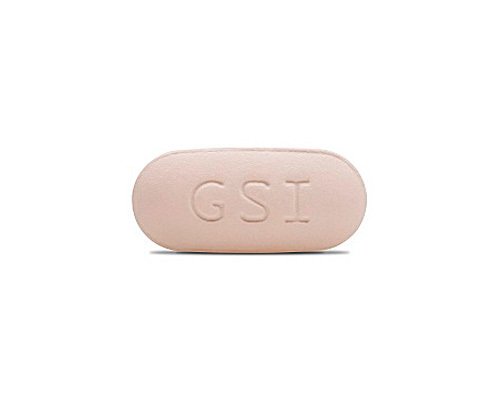A Complera lawsuit is a mass tort legal action against the HIV-drug manufacturer Gilead Sciences, Inc. Complera contains tenofovir disoproxil fumarate (TDF), which Gilead’s own studies show can cause major complications, including:
- Kidney problems such as renal failure from TDF’s toxins building up in the body;
- Bone damage such as osteoporosis and fractures, a direct result of damaged kidneys siphoning calcium from the bones; and
- Lactic acidosis from when damaged kidneys result in a metabolic imbalance – which can be fatal
Gilead had developed a safer HIV treatment drug than TDF with less toxicity and fewer side effects. But Gilead kept this safer drug off the market in order to squeeze profits from TDF. Our 2023 Complera lawsuits are seeking the maximum financial compensation allowable under the law.
Below our Complera lawyers answer the following frequently-asked-questions:
- 1. What are the grounds for a Complera lawsuit?
- 2. Who qualifies to be a plaintiff?
- 3. Where are the lawsuits being filed?
- 4. When are settlements expected?
- 5. How can an attorney help my Complera case?

Using Complera may result in bone loss and kidney problems.
1. What are the grounds for a Complera lawsuit?
Complera lawsuits in 2023 advance these claims against TDF drug manufacturer Gilead:
- TDF is a defective design, and Gilead negligently created it; and
- Gilead purposely withheld a safer drug to profit more from TDF.
These lawsuits concern Complera and also similar antiretroviral HIV medications Truvada, Atripla, Viread, and Stribild.
1.1 TDF was a negligent defective design
In order to prove that Complera is a negligent defective design, plaintiffs have to show two things:
- Gilead was aware of Complera’s risk; and
- Complera caused the plaintiff’s kidney injuries and/or bone mineral density problems
A great deal of publicly-available paperwork exists that shows that Gilead had full knowledge of the severe side effects of Complera and other TDF medications. Namely, the drugmaker knew that TDF had bad “bioavailability.” That is the scientific way of saying that the body cannot absorb TDF effectively.
Many medical experts are willing to testify about this link between TDF and bone and kidney injuries. And individual plaintiffs can produce their medical records as exhibits to show that they experienced bone and kidney problems after taking the drug.1
Depending on when a plaintiff took Complera, he/she may also be able to bring a failure to warn claim against Gilead. Many patients would not have taken Complera had Gilead informed them about the risks. Even the U.S. Food and Drug Administration (FDA) warned the drugmaker against misleading the public about TDF’s side effects.2
1.2. Gilead pushed TDF while withholding a safer drug
The plaintiffs claim that Gilead developed an HIV drug called TAF (tenofovir alafenamide fumarate) that was less toxic than Complera and other TDF drugs. However, Gilead kept this safer alternative off the market to make as much money as it could from selling TDF.
Gilead finally started selling TAF-based drugs just when TDF was about to lose its patent protection from generic alternatives. The drugmaker urged people taking TDF-based drugs like Complera to switch right away to its new TAF-based versions. And it cited TDF‘s side effects like renal failure and osteoporosis that it had previously insisted did not exist.
Gilead could have just gotten TAF approved by the FDA back in 2001, which was when TDF went to market. Instead, Gilead permitted patients to get sick from TDF for 15 more years. And the drugmaker did not start selling the safer version TAF to HIV patients until it was profitable for it to do so.3
2. Who qualifies to be a plaintiff?
Complera users who developed the following renal or skeletal injuries may have legal grounds to sue.
2.1. Qualifying kidney injuries for a Complera lawsuit
- Chronic kidney disease
- Acute renal failure / kidney failure which requires hospitalization and/or dialysis
- Low kidney function which requires dialysis or has been diagnosed by a doctor or other major kidney damage or acute kidney injury
- High creatinine levels
- Abnormal glomerular filtration rate (GFR), from levels 15 to 90
- Abnormal protein levels in urine
- Fanconi Syndrome/ proximal renal tubule dysfunction
- Lactic acidosis
A kidney stone is not grounds for a lawsuit unless it is accompanied by one of the above kidney disorders.
2.2. Qualifying bone injuries for a Complera lawsuit
- Osteoporosis
- Osteopenia
- Osteomalacia
- Bone density loss
- Bone demineralization
- Bone fractures which a doctor attributed to bone weakening or demineralization
- Weakening of the bones (“thin bones” or “soft bones”)4
A bone break is not grounds for a lawsuit unless it is accompanied by one of the above conditions.
Additional side effects from Complera can include swelling of the face and eyes, mouth sores, skin blisters, depression, and anxiety.

MDLs temporarily combine similar product liability cases against the same defendants to speed up litigation.
3. Where are the lawsuits being filed?
As of 2023, there is an MDL (multi-district litigation) out of the Northern District of California (federal court). An MDL is where similar lawsuits are consolidated to speed up litigation and a settlement. The MDL is called In Re. Tenofovir Disoproxil Fumarate Products Liability Litigation, MDL 2881.5
Unlike in class actions, MDLs keep the plaintiffs’ individual lawsuits separate.
4. When are settlements expected?
It will be at least a year or two before TDF settlement negotiations will begin. The plaintiffs’ attorneys are still in the discovery (evidence-gathering) process. A few of the cases will go to trial – called a “bellwether trial.”
How these bellwether trials turn out will largely determine the size of the final settlement. Assuming the bellwether juries hold Gilead liable and order high punitive damages, Gilead will probably agree to a large settlement to resolve the remaining lawsuits.
During negotiations, each plaintiff’s attorney will fight to recover enough compensation to cover the plaintiff’s economic and non-economic damages:
- Doctors’ bills and healthcare provider bills (past and future),
- Lost wages,
- Loss of future earning power,
- Pain and suffering, and
- Loss of consortium.
To prove damages, plaintiffs may need to produce past pay stubs, medical invoices, and receipts of any other out-of-pocket costs.
5. How can an attorney help my Complera case?
Complera victims who hire an experienced mass torts attorney can concentrate on their healing while the attorney manages the entire litigation and settlement process, including:
- Composing all legal filings;
- Corresponding with Gilead’s defense attorneys;
- Compiling evidence helpful to the plaintiff (victim) and harmful to Gilead;
- Aggressively negotiating a settlement; and
- Protecting the plaintiff’s legal rights.
Nearly all lawsuits resolve through a settlement. But in case negotiations fails, an attorney will also take the case to trial in pursuit of the largest financial jury award possible.
Legal References
- See Berrier v. Simplicity Mfg., Inc., 563 F.3d 38, 61 (3d Cir. 2009). Complera is a once-a-day drug that contains 1) tenofovir disoproxil fumarate, 2) emtricitabine, 3) and rilpivirine. Complera is considered a nucleoside reverse transcriptase inhibitor (NRTI).
- See Sample Jury Instructions CACI No. 1222. Negligence—Manufacturer or Supplier—Duty to Warn—Essential Factual Elements; Melody Petersen, “FDA’s second warning letter to Gilead, Los Angeles Times,” (May 29. 2016).
- See Melody Petersen, “Patients sue Gilead, saying drug company intentionally delayed safer HIV medicine,” Los Angeles Times (May 9, 2018). Examples of TAF medications include Genvoya and Descovy. See Andrew Hill et al., Tenofovir alafenamide versus tenofovir disoproxil fumarate: is there a true difference in efficacy and safety? Journal of Virus Eradication, Volume 4, Issue 2, April 2018, Pages 72-79.
- Iwen F Grigsby, Lan Pham, Louis M Mansky, Raj Gopalakrishnan, and Kim C Mansky, “Tenofovir-associated bone density loss,” Therapeutics and Clinical Risk Management 6:41-7 (2010); Willem D.F. Venter, June Fabian, and Charles Feldman, “An overview of tenofovir and renal disease for the HIV-treating clinician,” South African Journal of HIV Medicine 19(1):817 (2018); Pablo Rivas, Jorge Polo, Miguel de Górgolas, Manuel L Fernández Guerrero, “Drug points: Fatal lactic acidosis associated with tenofovir,” British Medical Journal 327:711 (2003); FDA Approval Letter for TDF.
- There is a class action regarding TDF medications: Martinez v. Gilead Sciences, Inc., No. BC 705063 (Cal. filed May 8, 2018).
